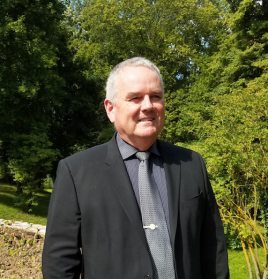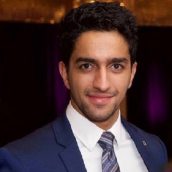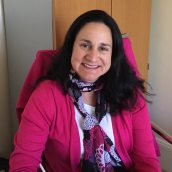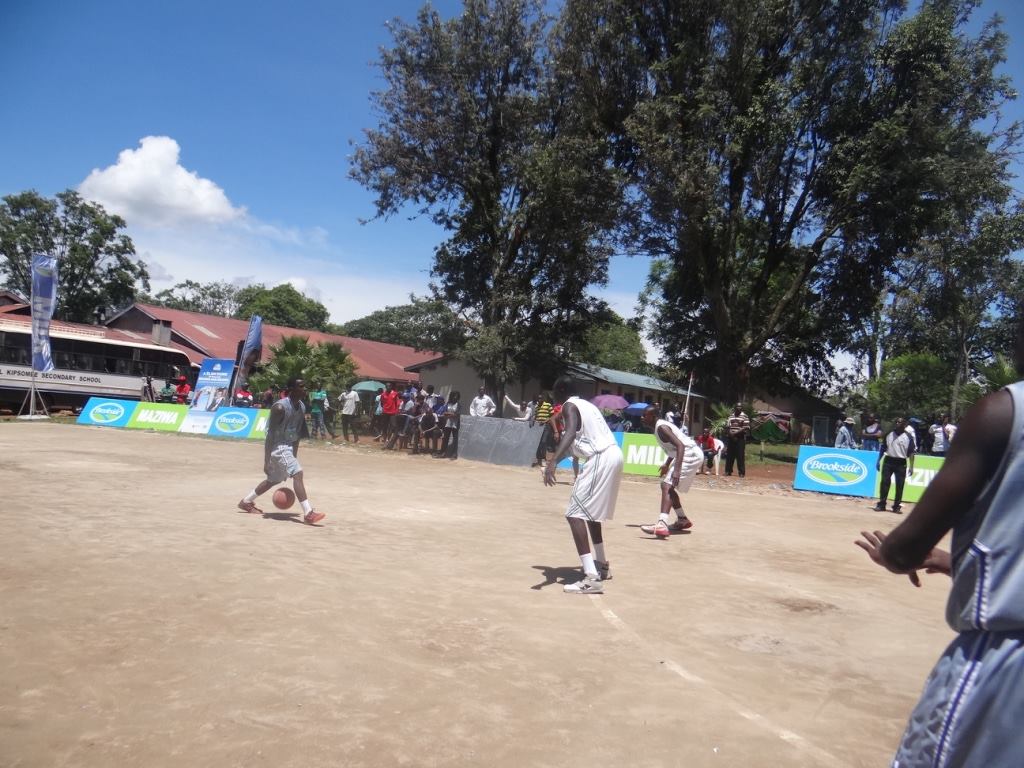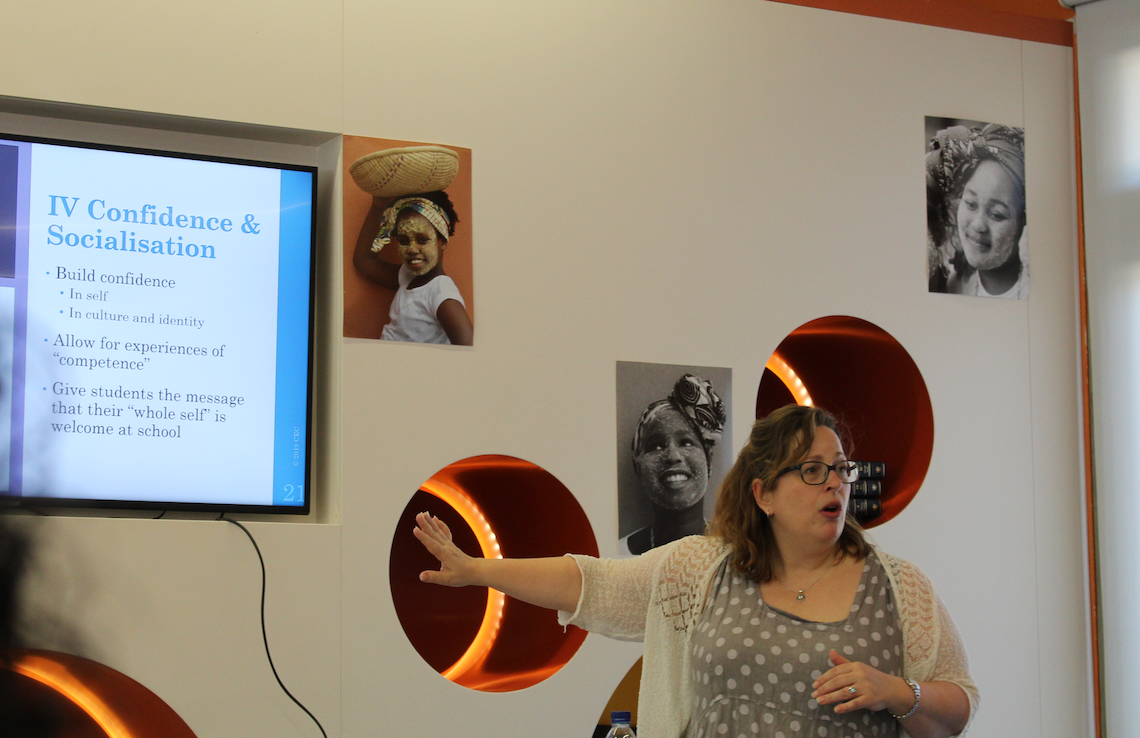Holiday on 12th Sep 2019 | Ganesh Immersion
Due to the likelihood of unusually heavy traffic and very congested roads, the Academy will be closed on the occasion of Ganesh Immersion.
Diwali holiday - Monday 28th October
The Academy will be closed on account of Diwali. Wishing you all a very happy Diwali!
Budding chefs to participate in cooking competition
Three Academy students will take part in the preliminary round of the F9 Kitchen Junior Chef on Saturday 11 Nov. We wish them all the best!
Jonathon Marsh: Supporting the quality of teaching at the Academies
Jonathon Marsh has system-wide responsibility for teacher development at the Aga Khan Academies network. Having worked for the Academies for the past 10 years, he has previously had leadership roles in education in Canada, Hong Kong, the United Arab Emirates and the United Kingdom, including as the Head of Professional Development and Research for the International Baccalaureate. In this interview, he shares the highlights of his position at the Academies, and reflects on how the Academies are unique from other educational institutions.
Tell us the journey that led you to the Academies.
I first came across the AKDN when I was in Hong Kong. I read a recruitment ad in the Times Higher Education magazine seeking people to fill positions at the then recently opened Aga Khan University in Karachi. I remember looking at the ad and experiencing a strong sense of conviction that one day I would work for this organisation. More than a decade later, while working at the IB, I was introduced to Salim Bhatia [Director of Academies] by the then Chair of the IB’s governing council. Salim asked me if I knew anyone that would be interested in taking a lead role in teacher development for the emerging Academies. At the same time, he was in discussion with Monique Conn, who was my line manager at the IB, about the position of Academic Director. Monique accepted the position soon thereafter and persuaded me to join as well.
What is the most rewarding aspect of working for the Aga Khan Academies?
I think the majority of my colleagues would unanimously reply “the students”, and they would be right to do so. However, for me the job is about quality teaching, and having the opportunity to really influence the discourse on teaching and learning in the countries and regions we work within is very exciting. Having a chance to work both at the high end with government ministries, NGOs and universities and at the chalk face with individual teachers, especially young people new to teaching, provides me with a full spectrum of very meaningful and satisfying engagements.
What led you to choose your particular career?
I don’t see it as a career but rather as a vocation. I see the profession of teaching as critically important to the health and ongoing development of any society. As such, I can think of no better way to contribute to the betterment of humanity.
What attracted you to the Academy?
First and foremost, the vision and mission. Especially attractive is His Highness the Aga Khan’s insight into the importance of the profession of teaching and the need to restore its much diminished status in the various geographies within which the Academies are located.
Reflecting on your time at the Academy, is there a particular day that was especially rewarding and memorable?
There are too many to count. Among them perhaps two stand out: 1) the graduation of the first cohort of teacher interns completing the Teacher Preparation Programme (TPP), and 2) becoming the first (and as yet only) school network in the world to offer a teacher development programme recognised under the IB Educator Certificate initiative. The building of the TPP and overcoming the many associated challenges took an extraordinary amount of effort, with contributions coming from many people. Seeing it come to fruition was very gratifying.
How do you think you contribute to the inner workings of the Academies and to the achievement of its goals?
I work collegially with the Heads and senior staff in each Academy to think through and implement systems to support the quality of teaching across the network. This includes working with both external and internal providers to source and implement professional development programmes; liaising with universities and other AKDN agencies to define and conduct research and development projects; providing support for the collection and analysis of standardised data; ongoing development and application of the Academies’ teacher appraisal programme; specifying career pathways for teachers; and contributing to the specification of the Academies outreach strategy.
What sort of positive impact have the Academies had on you?
I have gained a great deal of knowledge and understanding around what it takes to start up a high quality school. I have also gained a great deal of insight into the full complexity of running a school. I have always had a great deal of admiration for those brave and committed enough to teach, but my admiration has grown considerably for those who continue to do so under very difficult circumstances.
In what ways has the Academy helped you to become a more effective advocate in the education world?
I am nearing the end of my professional life (I am not really sure what that means other than a euphemism for being over 60), and my role in the Academies has provided me with a unique opportunity to apply much of the knowledge and understanding I have gained over the years. I have drawn upon my background in philosophy and spirituality to better ground my efforts to develop systems within His Highness’s vision for the Academies. I have drawn upon my studies in educational technology to inform system development. My time at the IB has helped me to understand the particular needs of IB teachers and how to support them. The years spent in tertiary education have enabled me to better liaise with universities and support research and data collection. Working with the Academies has allowed me to not only to promote principles of good practice and high quality education, it has provided me with a platform to do so in places that are hungry for change and very much in need of educational reform.
How would you describe the teacher development work with which you engage?
I would describe it as very rewarding precisely because it is very challenging. When it comes to teacher development, we are dealing with many layers of readiness among practitioners. Each country has its own approach to teacher preparation, and within each country not all teachers are given equal standing. For example, senior school teachers are typically better trained and better paid than junior school teachers. Junior school teacher preparation often does not involve gaining a university degree, and only those who could not get into a university opt for junior school teacher training programmes. Convincing people that teaching young children is at least as complex and difficult as teaching older kids is surprisingly difficult. Yet how are we supposed to achieve the kinds of sophisticated learning outcomes envisioned by His Highness if we do not prepare students for them right from the beginning? Building the necessary culture of professional respect for the expertise of all teachers, and indeed helping teachers to define and value their own professional identities is particularly important and very challenging.
What do you think sets the Academies apart from other educational institutions?
The Academies are not unique. There are other schools around the world which share many of the same attributes. However, they do have some very interesting defining characteristics. Firstly, the degree to which they are vision and mission led is compelling for many. Secondly, the commitment they have to provide access to excellent education to talented kids regardless of their ability to pay. Thirdly, their commitment to serve the countries they are in by providing an international standard of education for a majority of local students and employing 80% local teachers. Lastly, their rootedness in the local community and their ability to draw upon the many strengths of the wider AKDN as well as the committed and generous support of the Ismaili community.
How do you think the Academies ensure a climate of pluralism?
The Academies strive to value each child and each member of staff as a unique individual, and expect each to make a unique contribution. A pluralistic perspective is promoted by bringing together individuals from across cultural boundaries, tribal lines, disparate geographic locations, genders, ages, faiths, and economic backgrounds and providing them with a continuous and intensive opportunity to engage with, understand, and come to value each other’s “otherness”.
Aleem Mawji (Class of 2012): The most powerful weapon
A Hand Up at the Aga Khan Academy
I was born in Dar es Salaam, Tanzania, where I went through Aga Khan Nursery, Primary and Secondary schools. When I was approaching my last two years of secondary education, I started considering a move away from home to prepare for life in university, and the Aga Khan Academy Mombasa came to mind. I had visited the campus in seventh grade for a soccer tournament, and was left amazed by the beauty of the facility.
To be perfectly frank, my family’s financial circumstances would have made it very difficult to attend the Academy; some form of financial assistance was crucial. I was thrilled when AKA saw past the financial difficulty, recognized my accomplishments and potential to excel, and accepted me with a scholarship. I gratefully accepted the scholarship, knowing I had a responsibility to make full use of this immense opportunity. So at age 16 I set out for Mombasa and started with the International Baccalaureate (IB) program!
Learning a New Mode of Thinking; Meeting a New Community
Every day at AKA was challenging, as anyone that has experience with the IB program can certainly attest! Even mathematics presented a new language; I remember having to read a paper on mathematics with the date of publication and page numbers being the only numbers in the entire document! However, my most valuable academic experience was studying the Theory of Knowledge. This course focused very strongly on making one critically examine what it is that we “know.” To this day it has me questioning a lot of premises I would otherwise accept.
While the academic environment was fairly rigorous, it only enforced the already-strong sense of community one would experience in the residential program. One moment, we were scratching our heads over a physics lab report due that evening, and the next, we were plotting ways to sneak into the AstroTurf to kick the soccer ball around! In my opinion, this type of learning environment truly makes the Academy a unique and fulfilling experience. To this day, I still regard many of my dorm-mates as extended family rather than school colleagues.
Path to British Columbia
At the end of my two-year stay in Mombasa, I was honored to receive the Academy’s Medal of Honor for highest academic standing, and Award of Excellence; an all-round award for academics, sports, extracurricular, leadership, and volunteering. I was also nominated by the Academy for the International Leader of Tomorrow Award from the University of British Columbia (UBC). I received this award in the form of a full scholarship to study the program of my choice at UBC’s campus in Vancouver, Canada. While I left the compound of the Academy with immense joy knowing I had fulfilled some expectations placed on me, I felt an even greater sense of responsibility to myself, my family and the Academy given my opportunity to study in British Columbia.
The program I decided to study was Mechanical Engineering. Coming from a family of engineers certainly played a role in this decision, but I most appreciated the versatility of the degree and how the applications of mechanical engineering design spanned a range of industries. Over the course of my degree, I have worked on projects ranging from micro-controller-based autonomous vehicles, to a drip-irrigation system for optimizing use of a limited water supply. I have also spent eight months in the maintenance engineering department of a large copper mine, and have worked on the design of a device to prevent excessive bleeding from an injured limb.
I attribute my desire to work on this wide range of projects to two things: an unwillingness to be satisfied with the knowledge the I possess at any time, and a desire to have a larger positive impact on as many fronts as I can, when I have the capacity to do so. While these are arguably generic traits, my belief in them has been strongly enforced by the people I met at the Academy, and the Aga Khan Academy Learner’s Profile that the institution so strongly stands for and promotes in its students.
Working Together
During my third-year in university, I found myself at a cross-roads. While I enjoyed the versatility of the engineering degree, a part of me knew that becoming a professional engineer may not have been best-suited to my aspirations.
When I was in London visiting my cousin in the summer of 2015, he introduced me to the world of management consulting. Initially, it brought to mind an image of a team in suits, working in isolation, preparing a PowerPoint deck instructing a company on changes to be made to achieve X. I later discovered how out-of-date this impression is. Management consulting, I have found, is all about solving complicated problems that have a large impact on the clients and the community around them. More often than not, this is achieved while working hand-in-hand with the client companies to implement a proposed solution.
I learned more about this industry during a recent internship with McKinsey & Company. During this time, I got to work with a large coal mine that was seeking to reduce its maintenance costs. What was truly unique about this experience was how we were in the field, working with the tradesmen, foremen and managers, asking ourselves questions like “How do we know when best to replace this $300,000 piece of equipment? What actionable change can we make to our maintenance practice? How can we track the effect of this change?” We would draw on the strengths of each other’s backgrounds and figure out practical solutions together! I really appreciate this idea. I don’t want my work to be just theoretical or conceptual. I want to be on the front line, working with the people in question to make these changes tangible.
Harnessing Potential
One project that grew during my undergraduate study was a company that my brother, Naeem, and I co-founded. The company’s goal (to increase the access to electricity for people in Tanzania) was strongly based on values my family instilled, and that were prevalent at my time at the Academy. First, it applied the idea of giving back when one has the capacity to do so – not because we have to, but because we can. Second, it focused on the notion of sustainability and building capacity; not a one-time handout, but an activity that helps people harness their own potential to thrive.
In some ways, I see parallels in the role that the Aga Khan Academy has played in my story. As I approach the end of my undergraduate studies and begin my transition into a professional career, I reflect on the events that have taken place, and the individuals that have played a role to get me to the position I am in. While I owe an unparalleled amount of credit to my parents and two siblings for instilling the right foundation, I cannot overestimate the role the Academy played in my development. I came into the Academy with a scholarship, viewed as a student with potential, and have since become an individual with a stronger belief in my ability to harness my own potential, and that of people around me. That, I believe, is the most powerful weapon.
This spotlight is republished courtesy of AKF USA.
Videos
The videos below provide more information about the Academies and glimpses into student life at the Aga Khan Academy Hyderabad.
Pages
Theresa Urist: A passion for education
An Interview with Theresa Urist, Global Director of University Counselling at the Aga Khan Academies
Theresa Urist has always loved to learn. Growing up in a rural community in New York state, where many of her classmates did not go on to college, her thirst for education led her to Stanford, where she earned a B.A. with Honours in American Studies and tutored high school students in her spare time. She realised that she loved teaching as much as she loved to learn, so she secured a spot in the Master of Education programme at Harvard University before becoming a high school teacher and, later, a university counsellor.After more than two decades as a counsellor in the United States, where she directed college counselling at three different schools, Theresa’s desire to support students from poor communities led her to the Aga Khan Academies, where she became the Global Director of University Counselling in 2015. Her role is essential to the mission of the Academies, which aim to produce effective, ethical leaders with the skills and knowledge to support positive development in their societies. As the networks’ university expert, she coordinates the university counselling process so that the students are admitted to and select universities where they will flourish in their chosen fields.
Aga Khan Academies writer Alia Dharssi sat down for a conversation with Theresa about her passion for education, her work at the Academies and what makes her tick. Their conversation has been edited for clarity and length.
Alia: Can you tell me about yourself and how you wound up becoming a university counsellor?
Theresa: I was born and raised in a very small town on Long Island in New York State. I wanted to be a journalist as a kid and wound up writing for my college daily newspaper, where I had a 1am news deadline. It was crazy and frenetic. I realised that’s not what I wanted to do, but I had also begun tutoring at a nearby school and I really, really loved working with the students. That experience put me in the direction of education. I earned a Masters of Education from Harvard and became an English and history teacher. In 1995, I answered the call to become an interviewer for Harvard undergraduate admissions. I loved talking to students about their future plans and goals during the interviews, so I put the pieces together and entered the field of university counselling.
Alia: What makes you passionate about education?
Theresa: The way I see it, education is the key to social mobility. When students – like the ones on full financial aid at the Academies who are selected through our talent identification programme – become educated, it’s something that doesn’t just benefit them. It benefits their family and their community and has a ripple effect. I see it as a way that entire communities can get themselves out of poverty in one generation. Education is the most concentrated way you can effect lasting social change. That’s what gets me up in the morning every single day to do the work that I do.
Alia: Have you always thought about education in this way?
Theresa: Education is always something that has been at the forefront of my mind. My parents were well educated, but I grew up in a very rural community where a lot of people had not studied beyond the secondary level. So, when I went off to university at Stanford 3,000 miles away from home, it was an eye-opening experience. I was surrounded by very motivated people with a lot of interesting ideas. I had been a big fish in a little pond in my secondary school because I was somebody who was very hungry for education. I tried to access a lot of educational opportunities despite the fact that I attended a regional, rural public high school that did not offer the most enriching academic experience. College was the first time in my life I was surrounded by students who had had very different life experiences, who had gone to schools that were very academically rigorous, who were incredibly curious. It was vibrant and transformative.
Alia: That sounds like an amazing experience. You started working at the Academies after two decades of working as a counsellor in the US. What inspired you to take the job?
Theresa: When I heard about the job, it seemed like a perfect fusion of my interests. The mission of the Academies in terms of providing educational opportunities for students regardless of their means is one that spoke to my heart. In two decades of counselling, I had gone from working in college prep, private schools to working at an urban public school with very low-income students. There are so many talented kids whose socioeconomic background prevents them from accessing very good academic opportunities in places where they’re going to flourish. And so, in my own job search, I was looking for an organisation that provided such opportunities for students in need. I was also interested in international education – in addition to being a US citizen, I’m also a Swiss citizen and I’ve spent a good amount of time overseas – so this position really spoke to me.
Alia: What kinds of struggles have you seen students from poor socioeconomic backgrounds face when it comes to getting a good education?
Theresa: In my last role in the US, I was working in an urban public charter school with low-income students from all over the world. The majority of my students were first generation, meaning their parents had immigrated to the US. They did not speak English at home and they would be the first in their families to access higher education. I helped them navigate the system. Many of their families came from countries where poverty was a problem. Just getting to the US was a big hurdle. In addition, education is very, very expensive in the US, so it was a challenge for those students to figure out how to finance their education.
Alia: That sounds quite different from your role at the Academy. How do the two experiences compare?
Theresa: I certainly have a lengthy background in university counselling, but when I was based in one single school, it was quite limiting in a lot of ways. My work at the Academies requires a much larger scope in terms of finding what universities are a best fit for particular students. I had good working knowledge of US and Canadian schools coming in. What’s newer for me is some of the other schools beyond that, particularly schools in the UK. It’s given me a greater global perspective on education in terms of the different programmes that exist and the ways in which universities are trying to position themselves globally.
Alia: Can you tell me about your trips to the Academies? What was your first impression?
Theresa: My first visit was to Hyderabad. I found the students compelling and the facilities stunning. Everything exists in the service of students and forwarding their academic and personal growth. When I first made a visit to the Mombasa school, I found the level of arts that students were doing and the level of introspection that went into what they were creating was incredibly deep and heartfelt. It was more advanced than what I’d seen at other schools. A lot of the students’ art projects dealt with issues of social justice and presented very clear messages that made me hopeful. Seeing that level of attention given to something that is often peripheral at other schools speaks volumes about the Academies.
Alia: Absolutely. Why is your role important to the Academies’ vision?
Theresa: As we grow as a network, we want to make sure we are offering a consistent quality of university counselling services across campuses, so that’s a really important part of my work. We want colleges and universities across the globe to know who we are and why they should admit our students and fund them, so a big part of my job is conducting outreach to universities and colleges. When a university takes a risk on a student and that student does well, then it knows that it has a viable academic candidate and will admit more and more students from our schools. My job is to try to create pipelines for students at academically rigorous universities that recognise who we are and why our students are so interesting and compelling.
I also conduct some professional development like workshops for faculty members where they receive training about best practices for writing recommendations for students. Both campuses are now on the Naviance platform, which is an online portal that allows students to track all their applications and send documents to universities electronically. We also track data on the admissions process on the platform.
Alia: That’s important work, but now for a less serious question. What do you do when you’re not busy counselling?
Theresa: I love to cook and bake. In particular, I like making fancy cakes and tortes. Every year, during the holidays, I create a gingerbread house. They’re not basic ones; I have architectural plans. Last year, I made a church with candy stained glass windows. The year before, it was a Victorian house. Every year I do a different structure.
Alia: That’s quite a hobby. Do you eat the houses?
Theresa: Yes, eventually I do. My friend’s kids help me decorate the house, it stays up and then it gets destroyed. So that’s one of my hobbies. To balance my baking interests, I was a distance runner and had run a bunch of marathons, but I had to stop after an injury. But I still really like to be active. I like hiking and skiing and being outside.
Alia: Is there anything else you’d like to say?
Theresa: I love the work I do. I feel like mine is a really important role, so I’m just very grateful for the opportunity to work on behalf of the Academies.
